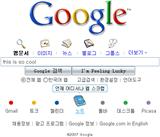Google will launch a Chinese website administrator blog (link to the English Website Administrator Blog).
The ranking performance in search engines like Google directly affects the operation of enterprises or companies. Many websites try every means to rank at the top of relevant queries. For some websites, if Google does not index them or demotes their rankings, the consequences can be unimaginable. However, search quality is the lifeblood of Google. Google is constantly improving its search quality. In some cases, Google has to demote certain websites or even directly remove them from its search results. This article introduces some situations that may lead to Google's demotion or removal and provides some remedies.
The most common reason for Google's punishment of a website is network cheating. In Google's Webmaster Guidelines, Google points out how to design a website, what content should be included, what techniques webmasters must understand, and provides quality guidelines for websites. Any site that violates the quality guidelines is considered a cheating site and may be penalized. In the quality guidelines, the following behaviors are considered cheating: hidden text or hidden links; cloaking or deceptive redirection; sending automated queries to Google; loading pages with irrelevant words; creating multiple pages, subdomains, or domains with large amounts of duplicate content; making "bridge pages" targeted at search engines, affiliate programs; creating pages that install viruses, Trojan horses, or other harmful software. The commonality of these behaviors is that they are done for search engines rather than for users visiting the site.
Another form of network cheating is the exploitation of invalid links. Some websites obtain links through buying and selling links, or by using other sites' self-service link functions to get links, or simply use spam link software to get completely invalid links. These short-sighted behaviors affect the normal operation of Google's ranking algorithm. Google has to adjust the algorithm to demote these cheating sites. In fact, some websites do very well and don't need to cheat to get invalid links. Over time, their sites naturally receive many more effective links. Google's algorithm ensures the fairness of rankings by distinguishing between natural links and invalid links.
In some special cases, Google also removes some websites. A year ago, we received complaints from users saying they were extorted. The extortionists claimed they could control whether all search engines would index their sites. We checked the cause and found that the user's site had been hacked. Under the user's webpage directory, the file robot.txt (http://www.robotstxt.org/wc/faq.html) could be modified at will by hackers. Some hackers simply create a new directory or program on the hacked site to generate cheating pages (which Google calls parasitic cheating). Often, the hacked site is removed by Google without knowing why it was deleted.
Of course, Google is a global company, and when displaying search results, Google follows local laws and filters out sites that violate local laws. Someone might ask, is there a possibility of collateral damage? Since Google started combating network cheating, Google's webspam engineers have always tried to make their algorithms as accurate as possible, close to 100%. Since the judgment of whether a site is cheating is made by an algorithm, there is inevitably some collateral damage. However, it can be guaranteed that the possibility of collateral damage is quite low.
So, how do you determine if your site has been demoted or removed by Google? A simple way to check if it has been removed is to use the site query in Google. For example, if your site name is foo.com and it was previously indexed, you can query site:foo.com in Google. If there are no results, it means Google has removed your site. A more precise method is to register and check your site's information using Google's Webmaster Tools.
Before requesting re-indexing or regaining rankings, users must remove content that violates the Webmaster Guidelines or check their site's security to ensure it hasn't been hacked. Content that violates local laws must also be removed. Demoted sites must remove unreasonable links. Otherwise, Google will reject the user's request.
After ensuring your site is normal, you can request re-indexing or regaining rankings through the Webmaster Tools. It should be noted that Google does not guarantee re-indexing your site, nor does it guarantee restoring your rankings. Additionally, re-indexing or reaching a certain ranking requires time. For sites that repeatedly commit the same mistakes, Google is very likely to ignore requests for re-indexing.
Google highly values communication with webmasters. We have a blog for English-speaking webmasters, and we will soon launch a Chinese webmaster blog. Google also warmly welcomes suggestions from webmasters on our search quality.
For example, if you are registered with Google Webmaster Central, you can report cheating sites with this form https://www.google.com/webmasters/tools/spamreport?hl=zh-cn.
If you don't want to register a Google account, you can also report here: http://www.google.cn/contact/spamreport.html




